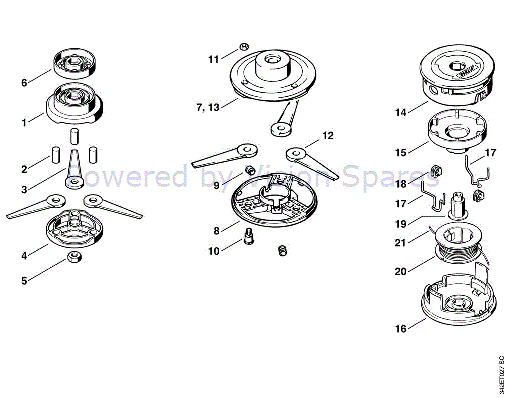
Wait and the street going down beside the electric membership corporation), continuing up the hill and turning left at the corner by another dry cleaners, then on past the police department and the courthouse, past Mr. I would ride the sidewalk past what was my grandmother’s dry cleaners (on the corner of E.

(yes, it used to have the “e” on the end) up to the oil company (aka H.L. My days began with riding my FarmAll pedal tractor from their home at 536 E. “In the summer months (1959-1967) I would practically live with Henry and Ida Belle Miller. Guess they thought “Love” may have been a tough one to shake growing up. My parents used Lane as my middle name (instead of Love), but I did take on the name of Henry (Lane) Miller. “Even though I was the first-born son of Oscar and Nita Miller, I was named after my grandfather. (This was after Henry Love Miller died in 1991 at 92.) Everyone else was spraying water on the fire which made the oil float and exposed more of it to the air.Īnd his grandson, Lane Miller, remembers more. Miller had worked in the oil fields in Oklahoma and was familiar with fire fighting and fire suppression techniques. The pool house has now been transformed by creative renovation into the Alston-Massenburg Center.Ī man this editor met years ago in a laundromat said his most vivid memory of Miller was when he dashed into a burning building to save him. There was resistance, of course, but Miller kept politely pushing until the town passed a $30,000 bond issue and the Taylor Street Pool opened in 1959. In 1956, after prodding by Bertha Perry, then Mayor Miller began talking about the black children and teens who needed recreation as much as white children. And there he was, on a bulldozer, clearing some land he owned and smoothing the dirt to make the ball field. When Forte went to the oil company office and asked for Miller, he was told he could find him up on North White Street. He told Miller, who was then the mayor, that the town needed to do something about this lack, and Miller told him to return the next day. Clarence Forte remembered years ago returning to Wake Forest and noticing there were no baseball fields for black youngsters. He not only gave money, he gave his time and effort to help people. Later, in the 1980s, he was part of the group who convinced Central Carolina Bank to build a new building and sell the old one to the town for the library, which had long since outgrown the rented space.

Miller was the first and only chairman of the library there. Holding Cotton Company, who had just moved down South White Street into two new warehouses with a company office, rented their old office – the brick building next to The Cotton Company – to the new library at a nominal price, high school ag students built the wood shelves, people donated books and the new Wake Forest Woman’s Club held fund-raising bridge nights at the Community House to pay expenses. In 1961, after county voters turned down a ballot proposal to establish a county-wide library system, Miller was among the many town residents who worked to build a town library. He was a three-term mayor, a member of the board and long-time chairman of Wake Forest Federal Savings & Loan and he helped establish and then was a director and chairman for the Wake Forest Chamber of Commerce.

He also donated the land for the park behind town hall, a park that bears his name. When the Wake County Hospital Authority decided to build a branch hospital in Wake Forest on South Allen Road, it was Miller who donated the land. Miller put a lot of his profits – he and Ida Belle did not splurge on themselves – into land. That was when the chamber building housed the Wake Forest Fire Department and the Wake Forest Rural Fire Department was housed next door in a twin building that is now the Williams-Walters Building. He had a do-it-yourself coin car wash in what is now the parking lot for the Wake Forest Chamber of Commerce. He operated Miller Oil Company in the small white building on East Elm Avenue where DAB International is now located until 1979, when he sold it to McCracken Oil. In 1945 Miller also purchased a local oil dealership. After World War II, Miller operated a school in the dealership building for veterans using the G.I.

One of his early jobs was working for Ray Harris, who set up the local Ford dealership in 1927 in the building where the state association of surveyors is now one of the tenants.īy 1940, Miller and his first wife, Ida Belle, had saved enough for him to buy that dealership and the building from Harris along with a Texaco dealership. Miller was a country boy from Texas with a limited education, but after he left the U.S. A quiet man with a face that loved to smile, Henry Love Miller was a quiet force for good throughout his life in Wake Forest.


 0 kommentar(er)
0 kommentar(er)
